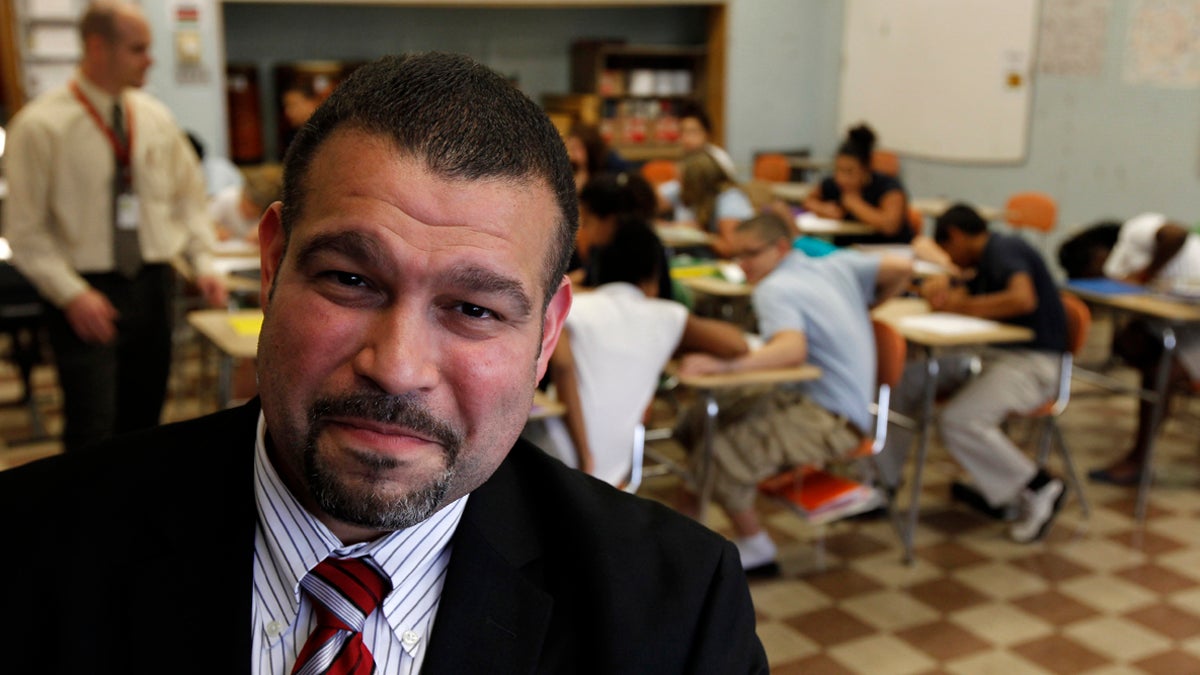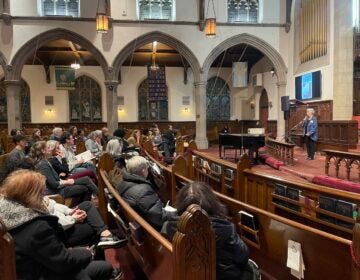After first year of Pa. school improvement pilot, Wolf team looks to expand
The pilot involved 10 representatives from the administration working with 19 schools chosen to represent districts ranging in size from small, medium, and large.

Superintendent Pedro Rivera poses for a photograph at Lincoln Middle School in Lancaster, Pa. (AP Photo/Alex Brandon)
The Wolf administration is touting a new approach to coordinating with schools on the district level around Pennsylvania.
After running a pilot program in three school districts last year, the Pennsylvania Department of Education said it’s trying to give those districts as much flexibility as possible.
The pilot involved 10 representatives from the administration working with 19 schools in Pittsburgh, Allentown, and Juniata County — chosen to represent districts ranging in size from small, medium, and large districts.
The effort stems from the federal government’s Every Student Succeeds Act, which replaced the previous No Child Left Behind Act in 2015.
Education Secretary Pedro Rivera said the goal is shifting to more individual approaches to specific district needs.
Previously, “there was an expectation that you’re going to engage in a real specific, small menu of activities, and then the penalty for not meeting academic goals was very prescriptive,” he said. “So now what we’re going for is creating a system of continuous improvement.”
Officials said one of the most important lessons they learned was being flexible in how they coordinate with district superintendents.
For instance, Rosemary Hughes, a special adviser on school improvement, said the superintendent in sprawling, rural Juniata County wears a lot of hats and is often too busy for sit-down meetings.
“We just got creative about what time of day we engaged in that connection or what mode of communication we used,” she said. “I do think, in the end, he felt he was in a position to be able to figure out how to use the funding to support the action plan of the school.”
The General Assembly allocated $2 million to the department in last year’s budget, and the funding was renewed this year. It also received $1 million in federal funds to expand the program.
Rivera said several other low-performing schools are adopting approaches from the pilot effort.
Going forward, the department plans to focus broadly on the bottom 5 percent of schools.
WHYY is your source for fact-based, in-depth journalism and information. As a nonprofit organization, we rely on financial support from readers like you. Please give today.






